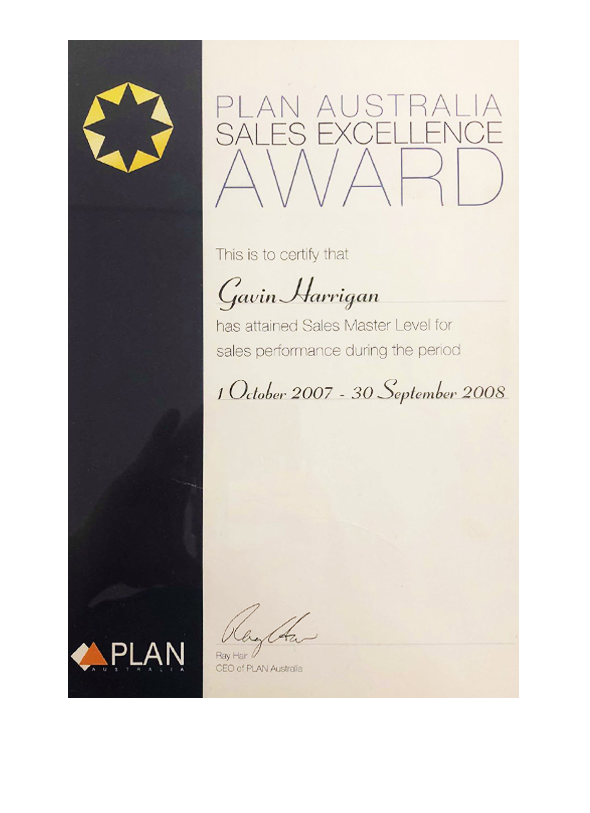The mortgage broker Perth locals trust
The latest home loan rates
Starting from
Comparison rate
Home loans
Your finance partner for life
Whether you're buying your first home, refinancing, upgrading your family home, or purchasing an investment property, our mortgage brokers in Perth provide access to hundreds of home loans and will work hard to find the one that is right for you.
Getting a home loan is one of the biggest financial decisions we all make in our lifetime, so you want to be sure that your loan works for you long term. We commit to supporting you throughout your finance journey - not just at the beginning - and ensure you have the flexibility to make some changes if your terms are no longer suitable.

Home loans
From first home buyers to experienced real estate investors, our Perth mortgage brokers have access to market leading rates and a diverse array of loan products.
Our team of mortgage brokers in Perth will put our years of experience and expertise to work for you. We’re one of Western Australia’s most trusted home loan facilitators, and we will find a home loan that will fit your needs and exceed your expectations.

Refinancing
Refinancing is a great way to potentially cut your payments and secure better terms on your mortgage.
There are many reasons why refinancing makes sense. For example, if your financial situation has changed, refinancing gives you the chance to refinance your loan with another provider.

Expat home loans
When applying for a home loan as an Australian expat living overseas, we recommend working with an experienced mortgage broker. They can help you get approved for a loan and secure the best possible interest rate. Knowing your mortgage broker has a well respected, and trusted reputation in Perth will give you all the more confidence.
Our lender panel
Our panel of lenders is not limited by the offerings of one or two banks, giving you flexibility with your options and the confidence that the loan you choose is right for you.




















Our recent awards
With over $1 billion in settled loans, we have built exceptional relationships with our lenders and thus have access to off-the-card rates and more flexibility.










Home loan calculators
Make an informed decision
We offer several calculators to aid our clients in making informed financial decisions.
These tools are useful for strategic financial planning and understanding different financing options but only provide general information.
For specific information regarding your unique needs, goals, and financial situation, feel free to get in touch with us for a chat.

Refinancing
This tool helps users calculate potential savings from refinancing their home loan.
By inputting details such as current loan information and new loan details, users can compare and understand how much they might save with a new loan.

Compound interest
This calculator is useful for understanding the effects of compound interest over time.
It can aid in financial planning by showing how investments or savings might grow with the compounding of interest.

Rent vs buy
This tool assists users in comparing the financial implications of renting versus buying a property.
It's beneficial for those who are undecided between purchasing a home or continuing to rent, offering a clearer financial perspective on both options.
Why choose us?
Home ownership doesn't need to be stressful. We provide flexibility, confidence, and a simplified finance process tailored to your financial situation so you can be confident and stress-free as you achieve your goals.
With over 20 years' experience and glowing reviews behind us, you can trust that you are dealing with the Perth mortgage specialist.
Other loans
We offer all types of institutional finance options

Construction finance
During the initial purchase of land and construction, a construction loan operates as an interest-only loan.
During the construction phase, a construction loan is an interest-only loan. You make individual drawdown payments as each major construction goal is completed, and you do this until the project is finished.

Development finance
Would you like to get a loan for your property development project? First-timers, experienced developers and everyone else can reach out to us to facilitate funding for their next development project. We're the leaders in WA for great loan terms on development finance, we can get your new project moving.

Commercial loans
When business owners need additional funding, banks can be a good place to start—but they often have strict requirements, which can make the process challenging and frustrating. Commercial property broking is one of our specialties, for a new office complex or for business purposes we can find the right finance for you.
If you're looking for an experienced mortgage broker to handle your construction finance, development finance, or commercial loan - you can look no further.
When it comes to more complex loans such as these, you want to ensure that whoever you're working with has demonstrable experience and a proven track record of getting deals done. With over 20 years' experience and glowing reviews, you can be confident that when you call us, you're calling an expert loan broker.
We understand that your time is limited. Our award-winning finance team will do the hard work for you and guide you through every step of the process so you can focus on running your business with the care it deserves.
About us
We work hard to find the right deal for you out of hundreds of options, not just the offerings of one bank.
Whether you need a home loan, a business loan, or are looking to refinance at the end of your fixed rate, our home loan specialists will find the right loan for you and constantly monitor the offerings on the market to keep you updated if a better fit becomes available.
Plus, if you get in touch during office hours, we will call you back within 30 minutes. So, get in touch today!
About Gavin Harrigan
Managing Director & Mortgage Broker
With over 20 years' experience in the finance industry, Gavin brings unparalleled service to his clients.
His qualifications include:
- Bachelor of Commerce from Curtin University for Applied Finance and Commercial Law
- Diploma of Finance and Mortgage Broking Management from AAMC Training Group
- 20+ years of experience
- Elite broker status
Helpful finance resources

How to Choose a Home Loan Lender

How to Choose a Mortgage Broker

What to Ask a Mortgage Broker

What Do Mortgage Brokers Do?

How Do Mortgage Brokers Get Paid?

Home Loan, Property Market & Consumer Trends in 2024

How to Refinance an Investment Property

How Long Does a Refinance Take?
FAQs
What services do we offer?
Our mortgage brokers in Perth offer a range of services, including assistance for first home buyers, refinancing options, and investment property purchases. We offer a diverse array of loan products tailored to meet the needs of various clients, from novices to seasoned investors.
How do mortgage brokers get paid?
Mortgage brokers typically earn their income through commissions paid by lenders, not from their clients.
To learn more about how these commission structures, read our blog about how mortgage brokers get paid.
Can we help with expatriate home loans?
Absolutely, we specialise in assisting Australian expats living overseas with securing home loans and competitive interest rates.
What options are available for refinancing?
We offer refinancing services to help you adjust your mortgage terms and potentially reduce payments, which is especially beneficial if your financial situation has changed.
Do we offer loans for construction and development projects?
Yes, we provide construction loans, which are interest-only during the construction phase, and development finance for projects of both new and experienced developers.
What makes us stand out as an independent mortgage broker?
As independent brokers, we provide personalised care and solutions for various challenges, including income verification issues, tight schedules, incomplete information, bad or recovering credit history, and more.
What are the recent trends in the home loan and property market?
We keep ourselves updated with the latest trends in the home loan industry, property market, and consumer behaviours, offering insights into these areas.
To stay up to date, read our blog covering all of the latest home loan, property market, and consumer behaviour trends.
Is Quantum Finance a licensed broker?
Yes, Quantum Finance Australia Pty Ltd is authorised under Australian Credit Licence Number 389083, operating as a trustee for the Gavin Harrigan Family Trust.
What is our privacy policy?
Please review our privacy policy to understand how your personal information will be treated as you access and interact with us.
